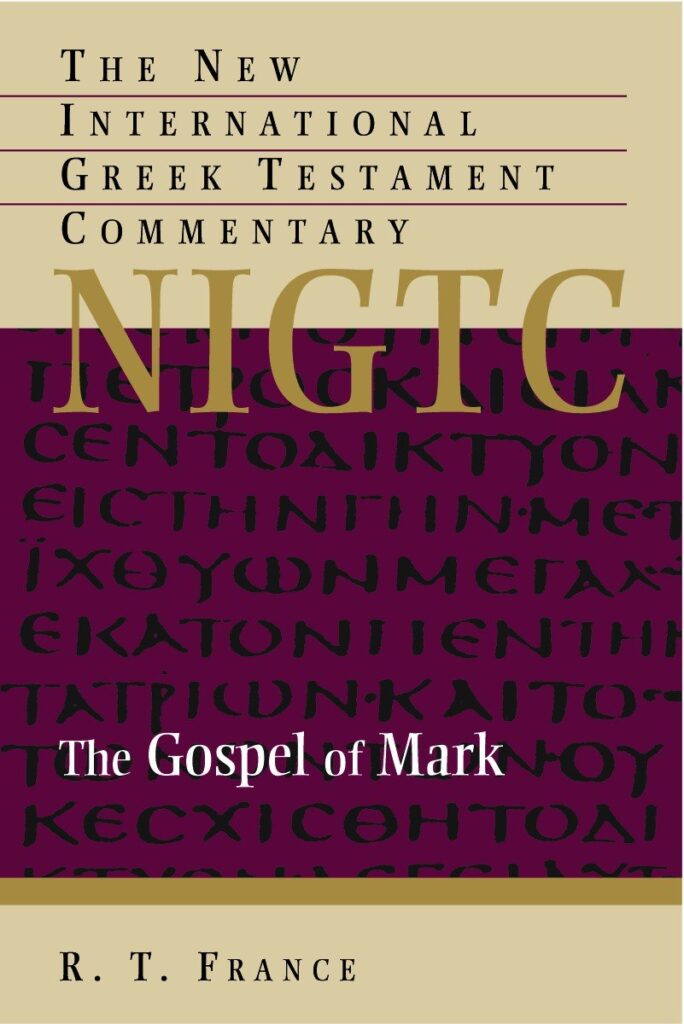|
Listen to this post:
|

R.T. France (1938-2012) was the author of a recent major commentary on the gospel according to Mark, which includes some interesting comments on this famous verse:
“But about that day or hour no one knows, neither the angels in heaven, nor the Son, but only the Father.”
Mark 13:32
First, (p. 543), France tries to squeeze some apologetic juice out of the fact that in a seemingly hierarchical list with God at the top, Jesus is mentioned in a higher position than the angels, “second only to [the Father].”
But then he faces the difficulty here for traditional christology squarely, and does not engage in the interpretive shenanigans that some apologists do. He writes,
The assertion of Jesus’ ignorance on a subject of such importance as the time of his own parousia [coming] seems to many incompatible with his status as Son of God. [Footnote: Hence the tendency in many MSS of the more-used Gospel of Matthew to omit the phrase [neither the Son] (so, in Matthew 24:36 [in various early manuscripts] and the majority of miniscules and later versions, as well as patristic citations as early as the third century.) Mark, being less used, escaped this apolegetic emendation.]
p. 544.
Comment: or rather, orthodox corruption. Thank goodness – look at Matthew 24:36 in most modern editions of the Bible – modern critical editions of the Greek text have removed this corruption. In any case, the widespread nature of it, I think, reflects the widespread assumption that full deity implies essential omniscience. As soon as traditions (modalistic monarchian, then trinitarian) began to claim full deity for Christ, scribes had a strong motive to “correct” Matthew 24:36. Back to France,
If this title [Son of God] implies that he is himself divine, and God is omniscient, how can the Son of God be ignorant? More specifically, if this is a matter which the Father does know and the Son does not, must we conclude that to be Son of God means something less than full participation in the divine attributes?
p. 544
Comment: Yes, we should conclude that, for a great many reasons! But back to France, and here comes the brutal honesty,
Even to express these questions directly is to be aware immediately of a change of context. This is the language of later Christian theological debate, not of the gospel of Mark. Whatever later readers may have made of it, Jesus’ ‘confession of ignorance’ seems to pose no embarrassment or even surprise for Mark. Perhaps he had not as yet made as tight a link between the title ‘Son of God’ and the claim to full divinity as was developed in later incarnational theology. Or perhaps he would have felt comfortable with what many centuries later was to be formulated as kenotic christology, the belief that when God becomes incarnate it is inappropriate to expect such divine attributes as omniscience to be evident within the temporary confines of an authentically human existence. We cannot know how he would have responded to these later questions, and it is likely that this issue, and the embarrassment which it brings to his text at 13:32, would not yet have occurred either to him or to his readers. To debate it in a commentary on Mark’s gospel would be anachronistic.
p. 544
Comment: Right, because a modern commentary aims to expound what the original writer meant, not what later readers want it to mean.
Kenotic christology? No, because of the widespread assumption I mentioned, that divinity implies essential omniscience. A “kenotic” solution to problems of two-nature christology had to wait until the 19th century!
Going back to Mark, this lack of embarrassment France notes is telling, and I think constitutes important evidence, as I argue here. At least, we can register the impact of this seeming lack of embarrassment in light of the wider New Testament picture. It is exceedingly unlikely that our author, thinking that Jesus is fully divine, is just going to portray him, without warning or comment, as claiming not to know something. Thus, it is unlikely that this author thought that Jesus was fully divine. And there are many more facts about New Testament portrayals of Jesus that seem very unlikely if the authors thought him to be divine.
Finishing up this section, France writes,
The focus of v. 32 is not on christology, but on eschatology. Unlike the thoroughly predictable end of the temple, the time of Jesus’ parousia is known only to God. Even the Son himself, who might most have been expected to share the secret, does not know. [Footnote: For a similar restriction see 10:40 [“but to sit at my right hand or at my left is not mine to grant, but it is for those for whom it has been prepared.”]: it is God alone, not Jesus, who assigns the places of honour.] The situation calls, therefore, not for calculation of dates or careful observation of signs, but for constant readiness.
p. 544
Comment: In Mark 10:40 it would seem that God is greater than Jesus in authority, just as in Mark 13:32 God is greater in Jesus in knowledge. What, you say that clearly this must merely functional subordination? Really? Where does Mark tell us that? And why does he never lift a finger to warn us about drawing ontological and not merely functional conclusions?
